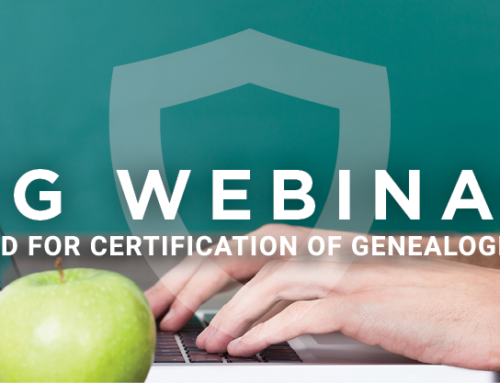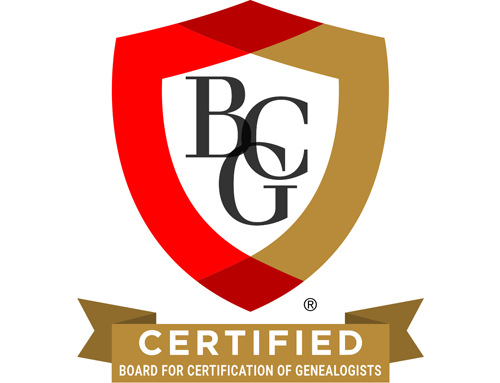“Proving Your Case: Using the Rules of Logical Argument”
Presented by Michael G. Hait, CG®, CGL℠
Reviewed by Nikki Peak Birch, CG®
NOTE: This post is one of a series reviewing the BCG Skillbuilding lectures presented at the National Genealogical Society’s 2019 Family History Conference held in St. Charles, Missouri from 08-11 May, 2019. Recordings of these lectures and the accompanying session handout can be purchased from PlaybackNow NGS at https://www.playbackngs.com/
In this lecture Michael Hait explains how arguments are structured and then uses a complex, published case study to demonstrate how evidence was used to construct a series of proof arguments supporting the identification of Thomas Burgin’s parentage.
Michael starts off defining the simplest type of logical argument, where the premise equals the evidence. He continues with more complex types of arguments. Each type – deductive, inductive, and compound arguments is illustrated with examples to encourage understanding. Michael was also careful to explain how some types of arguments can be valid but unsound because the underlying premise of the argument may not be true.
Complex inductive arguments are commonly found in genealogical proofs which rely on indirect evidence to support conclusions. Using his published case study, Michael took the audience through an example of how to use smaller logical arguments to build up to more complex conclusions. The case study was broken into the various premises and conclusions, then each part using smaller arguments moved in a logical progression to higher level proof arguments. He also noted that this is not how the research was conducted. Building and layering of evidence and proof summaries in many cases can only be assembled once thorough and reasonably exhaustive research has occurred.
Michael’s excellent handout contains publications, case study examples, articles, and tips for building a logical proof argument. Any genealogist who is interested in a deeper understanding of constructing effective proof arguments would profit from this lecture.
The words Certified Genealogist and letters CG are registered certification marks, and the designations CGL and Certified Genealogical Lecturer are service marks of the Board for Certification of Genealogists®, used under license by board certificants after periodic evaluation.


